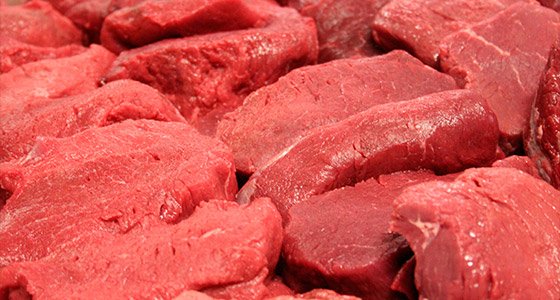The following is an excerpt from Chapter 12 of my new book The Protein Book. The book is a complete examination of the topic of dietary protein for athletes.
Creatine Monohydrate
Creatine may be the single most studied product in the history of dietary supplements. While not an amino acid itself, creatine is produced in the body from the amino acids arginine, glycine, and methionine. To completely review all of the research on creatine would be unrealistic, due to the sheer volume of it (hundreds of papers); I'll rely heavily on review papers for this reason.
Creatine is found in skeletal muscle in the form of creatine phosphate, and its main mode of action is to provide an inorganic phosphate to resynthesize ATP during high intensity activities, typically lasting 10 seconds or less (i.e. sprinting, high intensity weight lifting). However, as more research has been done, it appears that creatine may have benefits for other types of exercise as well. For completeness, I'd mention that creatine has even shown benefit in the treatment of certain disease states, but that topic is beyond the scope of this article.

The body normally synthesizes about 1 gram of creatine per day with an additional 1 gram coming in from the diet1. Studies repeatedly show that muscular stores can be supersaturated with a variety of dosing protocols; creatine loading is discussed below. Conceptually, creatine loading is similar to the idea of carbohydrate loading whereby high intakes of carbohydrates can overfill muscular glycogen stores to improve athletic performance.
Although other forms of creatine have recently become available, the primary form for supplementation is creatine monohydrate (CM). Over the past several decades, a tremendous amount of research has been done on CM and performance.
Creatine supplementation can potentially impact on exercise performance through a number of different mechanisms1. The most direct is by increasing muscular stores of creatine phosphate which is used to resynthesize ATP during high-intensity activities lasting a few seconds or so. Creatine may also help to buffer changes in muscle acidosis, as well as sparing glycogen utilization during short-duration activities.
Creatine doesn't appear to affect aerobic metabolism2. Thus creatine supplementation would be expected to impact on activities lasting between 10 seconds and 2 minutes with little to no benefit for activities lasting longer than that (the potential impact of creatine on endurance athletes is discussed further below). Creatine also appears to improve recovery between repeated bouts of high intensity activity such as repeated sprints or intervals.
The majority of early studies examined its effects on fairly short-term activity, either weight lifting or sprint performance. Although not all studies found a positive effect, the grand majority did. In one review of 22 studies, the CM group showed an average 8% better gain in maximum strength and a 14% increase in the number of repetitions done with a sub-maximal load3.
In another review, it was reported that nearly 70% of creatine studies had reported a benefit to high intensity training with none showing a negative effect4; the other 30% found no effect at all. It reported an average gain in strength and repetitions to failure of 5-15%, an increase in sprint performance of 1-5% and work done during repeated sprint performance of 5-15%.
In addition, creatine has been suggested to increase the gains in muscle mass with training. Studies have routinely shown an increase in lean body mass with creatine supplementation although this is likely to represent increased water retention in the short-term1. However, over the longer term, CM could potentially impact on muscle mass gains.
These effects might simply be indirect: by allowing an athlete to work with heavier weights or to get more reps with a given weight, gains might be increased.
However, some research has suggested more direct effects of CM on muscle mass, including an increased expression of genes involved in muscle growth as well as myosin heavy chain expression5,6. Creatine might also impact on cell metabolism by altering cell volume (the amount of water in the cell impacts on a number of biological processes including protein synthesis and breakdown).
One study found that 5 days of creatine loading decreased leucine oxidation (a marker of protein breakdown) although it had no effect on protein synthesis7. Interestingly, this effect was only seen in male subjects; other studies have shown a gender difference in responses to creatine with women typically gaining less body mass than men8. However, women seem to receive the same performance benefits from creatine supplementation as men9.

Not all research has found a beneficial effect of CM on protein synthesis and breakdown. One study of CM supplementation examined a host of effects after resistance training and found no impact of CM on either protein synthesis or breakdown10. The same group found no effect of creatine on protein synthesis or breakdown at rest as well11. At this point, a direct effect of creatine on muscle growth is still up to debate, although the impact of creatine supplementation on strength and power performance is essentially unarguable.
With one possible exception, CM is likely to be one of the very few must-have sports supplements for any strength or power athlete interested in maximizing either performance or training.
CM is inexpensive, readily available, and proven in over hundreds of studies to have a beneficial effect under most conditions relevant to those types of athletes. The one major exception to this is weight class athletes for whom CM could cause problems in making weight due to the increased water retention. Even there, CM could be used during training and then stopped several weeks prior to competition to allow any extra water weight to be lost.
While the benefit of CM for strength/power athletes is well established, the role of CM for endurance athletes is more debatable. Based on its mechanism of action, there is little reason to expect CM supplements to greatly benefit endurance events or any event lasting longer than about 3 minutes. For the most part, research has supported this with CM having no real impact on endurance performance1.
Some early research even suggested that CM might impair running or swimming performance, most likely by increasing body weight12; sports where body weight is supported such as cycling or rowing sometimes show a performance improvement but this is an inconsistent finding.

Studies examining intermittent endurance performance (interval training) have found some benefit, which is in keeping with the mechanism of CM. Given the use of high-intensity/interval training by endurance athletes, CM could still play a role in improving overall training performance and adaptation.
There is other research suggesting that CM can still be useful for endurance athletes although, once again, the data is far from complete. One study of rowers found that CM supplementation had no impact on aerobic metabolism but improved the increase in lactate threshold with training13.
In another study, CM improved anaerobic power output by 18%, with no impact on aerobic metabolism in a group of triathletes14. CM supplementation for 5 days also decreased markers of muscle inflammation and damage following a 30 km run15.
So can CM improve endurance performance? Perhaps. CM might be beneficial during periods of interval training, to improve the quality of training and stimulate better gains in adaptation (similar to the effects for strength and power athletes). Additionally, since many endurance events contain high intensity efforts (e.g. a cyclist trying to make a breakaway or climb a hill), CM might have some benefit there as well.
However, any improvements in anaerobic performance have to be balanced against the weight gain that can occur; the increase in body weight could easily overcome any improvements in power output. The data on muscle damage is interesting but preliminary.
If CM can improve recovery following extensive endurance training by limiting muscle damage, then this would be another potential benefit to endurance athletes. This is especially true for runners who may cause muscle damage during training due to the high impact nature of their sport (downhill running also causes a great deal of muscle damage). CM could also benefit endurance athletes by increasing glycogen storage16.
Although research has consistently demonstrated a performance improvement with CM supplementation, some people appear to be non-responders to creatine, and there appears to be a specific biological profile that goes with being a creatine responder versus a non-responder17.
Creatine responders tended to have the lowest starting creatine level, a higher proportion of Type II muscle fibers, a larger muscle cross sectional area and a greater amount of lean body mass. Non-responders were the opposite, having higher starting levels of creatine, less Type II fibers, a smaller muscle cross sectional area and less lean body mass.
One current controversy regarding creatine is over a potentially negative impact of caffeine on creatine intake. Two studies, using different performance tests have found that high doses of caffeine (5 mg/kg or 350 mg for a 70 kg athlete) negated the ergogenic effects of creatine18,19.
Creatine appears to reduce muscular relaxation time after contraction20; this would be important during sprint types of activities. High doses of caffeine appear to negate this effect. Whether lower doses of caffeine have this type of effect is unknown. It's interesting to note that many early studies provided CM with tea (containing small amounts of caffeine) and the benefits were still observed. As well, whether caffeine negates the benefits of CM during others types of activity is currently unknown.

Potential Negative Effects Of Creatine Supplementation
A number of potential negative effects of creatine have either been studied or theorized and it's important to look at these1,21. Early creatine products, which tended to have the consistency of sand and mixed poorly, often caused stomach upset in users, especially at high doses. This is less of an issue now as products generally mix and dissolve easily; the small amount of research done on the topic suggests no real effect of creatine on stomach upset.
However, some athletes still have problems with CM and stomach upset especially if they use the higher dose loading schemes. Typically, 20 grams of CM per day for 5 days has been used to load, and the sheer amount of CM can cause problems. I'll present two other loading schemes below in the application section that athletes may wish to experiment with if high dose CM intake causes them stomach upset.
Another possible potential negative effect of creatine is the impact of creatine on the kidneys or liver. Research on healthy individuals has found no impact of creatine on either kidney or liver function, although individuals with a preexisting condition could potentially have problems. Creatine supplementation will increase creatine excretion which can raise alarm if blood work is done, but this is a normal response.
In the early days of creatine use, there were many anecdotal reports of muscle cramping, but direct research has not supported this effect. Cramps are more likely due to the high-intensity nature of the training being done and/or electrolyte imbalances. Ensuring adequate water intake during creatine loading is a key factor to avoid such problems. One study of collegiate football players found that CM actually decreased the incidence of cramping and injury22.
A final potential negative is the increase in body mass with creatine supplementation, although this is most likely caused by an increase in total body water. This increase in mass can range from 1-2.5 kg (2-5 pounds) over the course of the first week of loading; once again, women seem to see a much smaller increase in body mass than men.
This has particular relevance for weight class athletes (such as powerlifters, Olympic lifters or MMA athletes) as the increase in body mass from creatine could potentially prevent an athlete from making weight. Additionally, the increase in body weight with creatine may offset performance benefits in some types of sports (especially distance running where the extra body mass requires more energy to move) as discussed above.
Application
As mentioned above, creatine is naturally occurring in meats which contain 4-5 grams of creatine per kilogram (2.2 pounds). A typical daily dose for CM during a standard loading phase may be 20 grams per day; this would require an unrealistic intake of nearly 10 pounds of meat per day.
Almost all of the studies done to date have used CM for supplementation although many other types of creatine products such as creatine serum, effervescent creatine, creatine phosphate or creatine ethyl ester have been brought to market. For the most part there is little to no research on these alternate products and little to no reason to expect them to perform more effectively than inexpensive bulk CM powder.
Regardless of the form of CM used or the type of loading scheme followed, intramuscular creatine levels will eventually reach a maximum level with any excess creatine being excreted in the urine past that point. The only possible benefit of another form of creatine would be to load muscular stores more quickly or possibly with less gastric upset.

The most common dosing pattern has been to take 20 g/day of CM for 5 days and most research has used that approach. However, alternate loading patterns are possible and may be preferred for various reasons. Ten grams of CM for 10 days or even 3 grams per day for a month can both be effective. At the end of this time period, intramuscular creatine stores will be maximized; the only real difference is how long it will take to load.
It appears that insulin is important for creatine uptake and taking creatine with a simple carbohydrate23 or carbohydrate and protein may increase uptake24. Adding lipoic acid (1000 mg/day) to creatine with carbohydrates may also increase uptake and storage25. Creatine uptake is also increased following endurance exercise. Athletes who want to limit their total carbohydrate intake for some reason may want to take their creatine following training23.
Following loading, many recommend a maintenance dose of 3-6 grams/day to maintain muscular stores26. Even with zero supplemental creatine intake, muscular stores of creatine remain partially elevated for at least 6 weeks following loading26.
As mentioned above, creatine occurs naturally in meats, especially red meat. Vegetarians have been found to have lower muscular levels of creatine and appear to get a greater benefit from creatine supplementation27 as a consequence of starting with lower initial levels. Athletes who eat large amounts of red meat may not get much out of creatine supplementation for this reason: they already have higher levels of creatine stores.
CM is a granular white powder that usually mixes reasonably well in liquids. It can be put into blender drinks and, as mentioned, consuming CM with carbs or carbohydrate and protein improves uptake; so does taking CM after endurance exercise (whether this holds for resistance training is unknown).
Related Video Creatine, what is it?
Watch The Video - 07:28
Due to concern over poor mixability, some athletes have taken their CM by putting the powder directly into their mouth and washing it down with some liquid. This ensures that no unmixed creatine is left in the glass or mixing bowl.
As a final comment, there has been some suggestion that creatine should be cycled, due to a possible impact of creatine supplementation on the creatine transporter or on normal synthesis. While creatine intake appears to downregulate the creatine transporter in animals, this doesn't appear to be the case in humans28.
Additionally, even if CM supplementation downregulates the body's normal production, this should be a non-issue as long as a daily maintenance dose is used; above normal levels of creatine phosphate in the muscles will be maintained.
As mentioned above, CM is perhaps the single most well-studied sports supplement in the history of the industry and would appear to be one of the few supplement must-haves especially for strength/power athletes; it may also have some benefit for endurance athletes.
Whether an athlete chooses to do the typical loading phase (20 g/day for 5 days) or one of the longer-term loading approaches (10 g/day for 10 days or even 3-5 g/day for a month) would seem to be irrelevant, because at the end of that time period, muscular creatine stores will be maximized. The daily dose of creatine should be split up with at least one dose (3-5 grams) being put into the post-workout carb/protein shake. After loading, a maintenance dose of 3-5 grams/day would be used post-workout on training days, or with any meal on non-training days.
References
- Bemben MG, Lamont HS Creatine supplementation and exercise performance: recent findings. Sports Med. (2005) 35(2):107-25.
- van Loon LJ et. al. Effects of creatine loading and prolonged creatine supplementation on body composition, fuel selection, sprint and endurance performance in humans. Clin Sci (Lond). (2003) 104(2):153-62.
- Rawson ES, Volek JS. Effects of creatine supplementation and resistance training on muscle strength and weightlifting performance. J Strength Cond Res. (2003) 17(4):822-31.
- Kreider RB. Effects of creatine supplementation on performance and training adaptations. Mol Cell Biochem. (2003) 244(1-2):89-94.
- Willoughby DS and J. Rosene. Effects of oral creatine and resistance training on myosin heavy chain expression. Med Sci Sports Exerc. (2001) 33(10):1674-81.
- Willoughby DS and JM Rosene. Effects of oral creatine and resistance training on myogenic regulatory factor expression. Med Sci Sports Exerc. (2003) 35(6):923-9.
- Parise G et. al. Effects of acute creatine monohydrate supplementation on leucine kinetics and mixed-muscle protein synthesis. J Appl Physiol. (2001) 91(3):1041-7.
- Mihic S et. al. Acute creatine loading increases fat-free mass, but does not affect blood pressure, plasma creatinine, or CK activity in men and women. Med Sci Sports Exerc. (2000) 32(2):291-6.
- Branch JD. Effect of creatine supplementation on body composition and performance: a meta-analysis. Int J Sport Nutr Exerc Metab. (2003) 13(2):198-226.
- Louis M et. al. No effect of creatine supplementation on human myofibrillar and sarcoplasmic protein synthesis after resistance exercise. Am J Physiol Endocrinol Metab. (2003) 285(5):E1089-94.
- Louis M et. al. Creatine supplementation has no effect on human muscle protein turnover at rest in the postabsorptive or fed states. Am J Physiol Endocrinol Metab. (2003) 284(4):E764-70.
- Juhn MS, Oral creatine supplementation and athletic performance: a critical review. Clin J Sport Med. (1998) 8(4):286-97.
- Chwalbinska-Moneta J. Effect of creatine supplementation on aerobic performance and anaerobic capacity in elite rowers in the course of endurance training. Int J Sport Nutr Exerc Metab. (2003) 13(2):173-83.
- Engelhardt M et. al. Creatine supplementation in endurance sports. Med Sci Sports Exerc. (1998) 30(7):1123-9.
- Santos RV et. al. The effect of creatine supplementation upon inflammatory and muscle soreness markers after a 30km race. Life Sci. (2004) 75(16):1917-24.
- van Loon LJ et. al. Creatine supplementation increases glycogen storage but not GLUT-4 expression in human skeletal muscle. Clin Sci (Lond). (2004) 106(1):99-106.
- Syrotuik DG, Bell GJ.Acute creatine monohydrate supplementation: a descriptive physiological profile of responders vs. nonresponders. J Strength Cond Res. (2004) 18(3):610-7.
- Hespel P et. al. Opposite actions of caffeine and creatine on muscle relaxation time in humans. J Appl Physiol. (2002) 92(2):513-8.
- Vandenberghe K, et. al.Caffeine counteracts the ergogenic action of muscle creatine loading. J Appl Physiol. (1996) 80(2):452-7.
- van Leemputte M et. al. Shortening of muscle relaxation time after creatine loading. J Appl Physiol. (1999) 86(3):840-4.
- Bizzarini E et. al. Is the use of oral creatine supplementation safe? J Sports Med Phys Fitness. (2004) 44(4):411-6.
- Greenwood M, et. al. Creatine supplementation during college football training does not increase the incidence of cramping or injury. Mol Cell Biochem. (2003) 244(1-2):83-8.
- Casey A and PL Greenhaff PL. Does dietary creatine supplementation play a role in skeletal muscle metabolism and performance? Am J Clin Nutr. (2000) 72(2 Suppl):607S-17S.
- Steenge GR et. al. Protein- and carbohydrate-induced augmentation of whole body creatine retention in humans. J Appl Physiol. (2000) 89(3):1165-71.
- Burke DG et. al. Effect of alpha-lipoic acid combined with creatine monohydrate on human skeletal muscle creatine and phosphagen concentration. Int J Sport Nutr Exerc Metab. (2003) 13(3):294-302.
- Preen D et. al. Int J Sport Nutr Exerc Metab. Creatine supplementation: a comparison of loading and maintenance protocols on creatine uptake by human skeletal muscle. (2003) 13(1):97-111.
- Burke DG et. al. Effect of creatine and weight training on muscle creatine and performance in vegetarians. Med Sci Sports Exerc. (2003) 35(11):1946-55.
- Tarnopolsky, M. et. al. Acute and moderate-term creatine monohydrate supplementation does not affect creatine transporter mRNA or protein content in either young or elderly humans. Mol Cell Biochem. (2003) 244(1-2):159-66.
